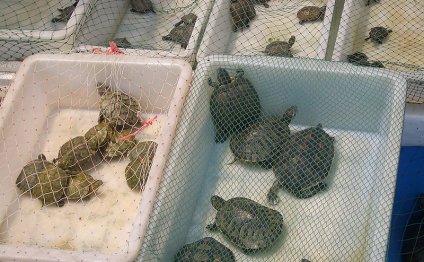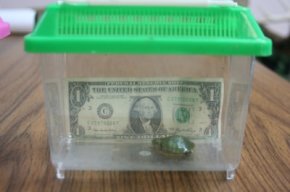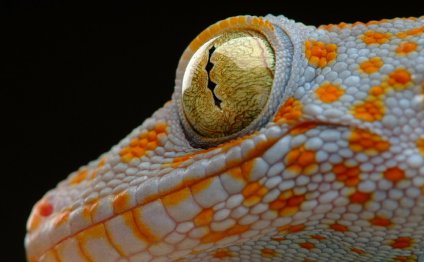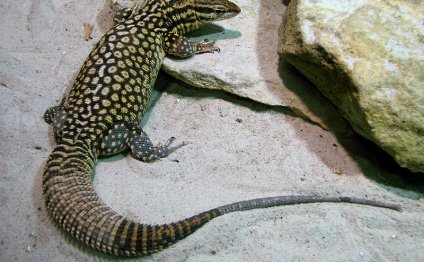
Small pets turtles for sale
 They’re cute but potentially deadly.
They’re cute but potentially deadly.
Tiny pet turtles, some of them the size of a quarter, are to blame for six ongoing salmonella outbreaks that have sickened nearly 200 people and counting — mostly children.
The Food and Drug Administration banned the sale of turtles with shells less than four inches long in 1975, an attempt to keep them away from kids back when small pet turtles were all the rage. The agency found that kids couldn’t resist kissing the toy-like reptiles or placing them in their mouths, sometimes contaminating themselves with the salmonella commonly found on turtles.
Turtle-related illnesses dropped sharply after the ban took effect. But as the current outbreaks demonstrate, they’re back. Illnesses have been reported in 30 states — including Maryland and Virginia — since last year, according to the Centers for Disease Control and Prevention. A thriving black market keeps churning out the small pets, which are often raised on turtle farms and sold at flea markets, on the Web or in stores.
In Maryland, authorities have seized about 500 undersize turtles in the past year. They’ve busted two turtle vendors in Montgomery County in the past two weeks: One for selling the turtles to a Silver Spring store; the other for hawking them at the Six Flags parking lot, said Mike Lathroum, a senior officer with the Maryland Natural Resources Police.
“We’ve really seen a big influx of these turtles for sale, ” Lathroum said. “I don’t know why. . . . We’ve not been able to determine the source.”
Turtles big and small shed salmonella in their droppings, and the bacteria ends up on their shells and skin. People who touch the turtles or their habitats risk infection if they don’t wash their hands afterward. Cleaning a turtle’s aquarium in a sink or letting one loose in the house also enables the turtle to spread the salmonella to household surfaces.
“In a space the size of a pinhead, you can have up to a million salmonella bacteria, ” said Eduardo Groisman, a microbiology professor at the Yale School of Medicine. “That’s more than enough to make a person sick.”
Children are especially vulnerable because their immune systems aren’t fully developed.
In 2007, a three-week-old baby in Florida died from a salmonella infection linked to a pet turtle. A family friend had purchased the turtle at a flea market. Months later, two teenage girls ended up in emergency rooms, one of them with kidney failure, after swimming in an un-chlorinated backyard pool in South Carolina with two undersize turtles.
Eleven turtle-related salmonella outbreaks have taken place since 2006, sickening 535 people, the CDC said.
Law enforcement officials rely on tips, sting operations and periodic pet store inspections to keep the turtles off the market. But resource restraints and logistical hurdles get in the way. Turtle vendors tend to be a transient bunch, often operating online or out of their cars. If they get caught in one venue, they set up shop in another.
In Maryland, authorities suspect that the vendor at the Six Flags parking lot is the same one they’ve received complaints about in other venues. That vendor told wildlife officers that he did not violate the turtle sales ban because he was selling the cages and giving the turtles away, Lathroum said. The vendor must now make his case to a judge. He faces up to $500 in fines and one year in jail under a Maryland law that also bans turtle sales.
“We’ve not been successful at putting anyone in jail, ” Lathroum said. “A lot of times these people are from out of state, so getting them back here for court has been difficult. We write the ticket, and they go on their way.”
Exceptions in the turtle ban allow the sale of these reptiles for educational, scientific and other uses. That presents another challenge. Turtle farmers who sell the reptiles to vendors often say they have no way of knowing what their customers do with the turtles.
The business can be lucrative one. While turtle farms usually sell to dealers for pennies, those dealers can turn a big profit. One Florida dealer nabbed by federal prosecutors in 20008 for selling 1, 000 undersize turtles to a souvenir shop, charged the shop about $3 and, then, the shop resold the turtles for about $15 a pop.
Turtle farmers, who now mostly cater to some Asian and European markets, have been fighting back. They say they’ve been unfairly targeted by the government, given that many animals commonly found in pet stores — such as lizards, snakes, cats and dogs — also carry salmonella. Yet the FDA only prohibits the sale of tiny turtles despite technology that can render these turtles salmonella-free, they said.
Eddie Jolly, head of the Independent Turtle Farmers of Louisiana, said the turtle farmers in his state disinfect their turtle eggs during harvest season. That prevents the baby turtle from getting infected when it pecks its way through the shell.
“Once it’s hatched, it can’t create salmonella in itself, ” Jolly said. “Our baby turtle is the cleanest pet reptile you can buy.”
RELATED VIDEO



Share this Post
Related posts
Colorful lizard
A very large species of chameleon that is endemic to forests in eastern and northern Madagascar. They reach up to 68 cm (27…
Read MoreCheap Turtles for sale
Red-eared sliders are a lot more dangerous than they look. Photo by Steve Hillebrand, courtesy of U.S. Fish & Wildlife…
Read More











